
The FDA granted JSKN003 breakthrough therapy status for gynecologic cancers based on data from the phase 1 JSKN003-101 and phase 1/2 JSKN003-102 trials.

The FDA granted JSKN003 breakthrough therapy status for gynecologic cancers based on data from the phase 1 JSKN003-101 and phase 1/2 JSKN003-102 trials.

Giredestrant displayed a safety profile consistent with prior findings and had a lower rate of discontinuation compared with standard endocrine therapy.

Those who took olanzapine reported higher levels of satisfaction than patients on placebo.
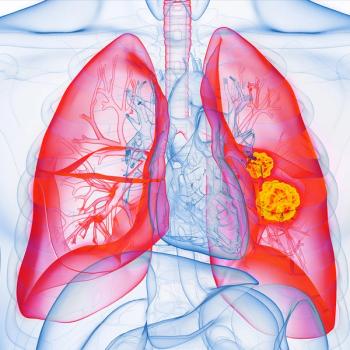
Anlotinib combined with immune checkpoint inhibitors may benefit patients with extensive-stage small cell lung cancer treated with prior immunotherapy.
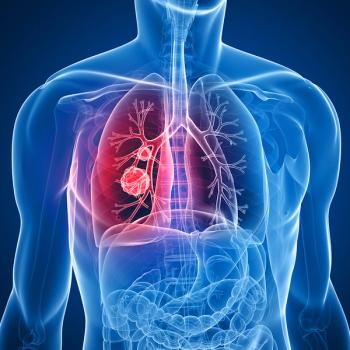
Zirconium-89–labeled BMS-986279 demonstrated tumor uptake in fuc-GM1–positive lesions in patients with ES-SCLC.

Olanzapine plus an antiemetic shows potential in preventing RINV while reducing other adverse events such as depression, appetite loss, and insomnia.

CRS and ICANS rates were similar in adults 75 years or older vs younger individuals with relapsed/refractory multiple myeloma.

Three of 18 patients had remissions lasting over 2 years in a study of ibrutinib plus nivolumab for relapsed/refractory CNS lymphoma.
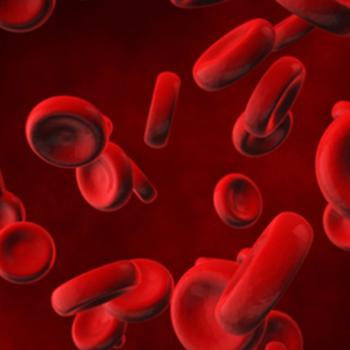
The FDA’s decision not to grant breakthrough designation or accelerated approval for itolizumab in acute GVHD has led to the discontinuation of the pivotal phase 3 EQUATOR trial.

Providing education about patients’ diseases was difficult, according to 32% of registered nurses and 29% of infusion nurses.

Osimertinib monotherapy and combination treatment had safety profiles consistent with previous data on use of the drug in EGFR-mutated NSCLC.
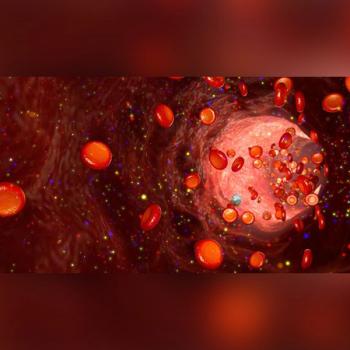
Elotuzumab plus pomalidomide, bortezomib, and dexamethasone showed tolerability in patients with relapsed or refractory multiple myeloma.

The complete response letter, issued by the FDA, does not identify what deficiencies regulators found in camrelizumab/rivoceranib for advanced HCC.
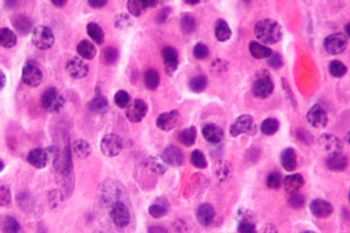
Real-world data show that older adults with lenalidomide-refractory MM have poor survival outcomes after 1 to 3 lines of therapy.

Lerociclib plus fulvestrant demonstrated a progression-free survival (PFS) advantage across all patient subgroups with HR–positive, HER2–negative advanced breast cancer.

In a phase 1 trial, all 9 patients with renal cell carcinoma treated with a neoantigen-targeting personalized cancer vaccine showed no recurrence at data cutoff.

More excellent responses occurred for patients with low-risk thyroid cancer who had thyroidectomies without radioiodine vs treatment with radioiodine.

Thermal ablation was associated with no treatment-related deaths and fewer AEs compared to surgical resection in patients with CRC liver metastases.

Phase 2 findings show clinical responses and improved survival with evorpacept in patients with HER2-positive gastric/gastroesophageal cancer.

The EA2186 trial was the first study specifically designed to test chemotherapy in older adults with advanced pancreatic cancer who were considered vulnerable.

Patients receiving ponsegromab experienced significantly greater weight gain and physical activity than those receiving placebo.

Device programming encounters near the end of life occurred in nearly half of patients with ICDs, offering a potential opportunity for goals-of-care discussions.

Updated results from the phase 3 CheckMate-8HW trial continue to show fewer severe (grade 3/4) side effects with nivolumab/ipilimumab compared to chemotherapy.

Analysis of two trials indicates psilocybin-assisted psychotherapy may benefit the mental health of patients with cancer.

The SU2C-SARC032 study demonstrated that pembrolizumab combined with radiotherapy and surgery was well tolerated, with infrequent surgical complications.

The phase 3 KEYNOTE-826 trial met its dual primary end points of overall and progression-free survival in patients with cervical cancer.

Treatment with venetoclax plus hypomethylating agents yielded improved response rates among adult patients with myelodysplastic syndrome.
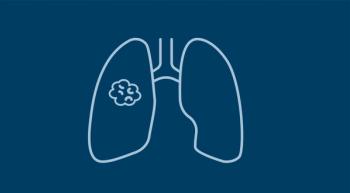
According to the American Lung Association, biomarker testing gaps and low screening rates continue to hinder lung cancer survival; however, rates have improved in the last 5 years regardless.

While pregnancy-associated cancer risks increased with age, breast cancer during pregnancy tended to not impact obstetric risk.

The addition of lurbinectedin to atezolizumab improved OS and PFS in patients with extensive-stage small cell lung cancer.

Published: July 29th 2024 | Updated:

Published: October 28th 2024 | Updated:

Published: January 16th 2026 | Updated:

Published: April 13th 2025 | Updated:

Published: July 11th 2025 | Updated:

Published: July 22nd 2024 | Updated: